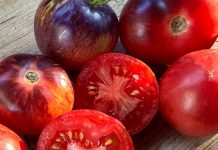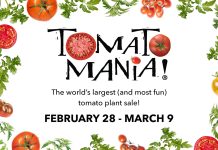 The place was wonderful. The aroma of far away forests lingered momentarily in the air, an earthy smell that jarred distant memories beyond my years, pulling at me like a dream that can’t reassemble itself in the morning.
The place was wonderful. The aroma of far away forests lingered momentarily in the air, an earthy smell that jarred distant memories beyond my years, pulling at me like a dream that can’t reassemble itself in the morning.
I recall the same type of aroma when I had walked into an apothecary in Europe many years ago. And like then, I felt as if I had walked through some kind of veil into the past. The door swung shut behind me and the room was wide and dark. My eyes soon adjusted and a wonderful forgotten world of ancient healing opened up. I breathed in deeply of the essence, musty remnants, some bright green, others grey, some a dull scratchy brown packed inside fat jars, standing row upon row on the shelves.
A long wooden counter stood prominently in front near one of the walls and on it a scale with specks of brown and green scattered on its shiny surface. Standing, looking, absorbing the surroundings, I felt completely, perfectly, unequivocally at home.
Herbalism is one of the oldest systems of healing in the world. The infinite amount of herbal combinations to bring the body to health or increase its functionality or send it added nutrients, whatever the use may be, brings a long history of natural medicine to our doorsteps.
The study of herbs goes back 5,000 years when ancient Sumerians listed hundreds of medicinal plants on clay tablets and when Ayurveda medicine was documented in the oldest layer of Sanskrit literature, the Vedas.
Ancient history is abundant with all kinds of herbal remedies and it is no wonder. If you think about it, plants are the harvester of energy and purveyors of adaptation to whatever Mother Nature has to offer, holding treasures inside their chlorophyll structure proven over millenniums through their hardy survival.
Healing finds its way through the power these plants hold in their chemical compounds. And it’s these compounds where most pharmaceuticals had their beginnings.
Willow bark, rich in salicylic acid, was used throughout the Roman and Arab worlds to reduce fevers. We know it today as aspirin.
There are hundreds more that have defined our medicines only to become lost from our primal knowledge and placed into the hands of “big pharmacy,” where they have isolated just one aspect of a plant and expanded it into a chemical monster.
Places selling jars of herbs, where a clerk spills three ounces of dried herbs into butcher paper rolled into a cone, are hard to come by these days. Instead, modernization has given us bottles holding capsules of powdered or liquid herbs ready for us to swallow, keeping us masters of our own health in one quick gulp.
Big pharmacy hates them, conventional medicine ignores them, yet thankfully their popularity increases despite it all.
Every culture is seeped in herbalism, and the fact that there are armloads of new herbs with unpronounceable names finding their way into homes allows for a more holistic way of healing.
Simple herbs such as basil, thyme, garlic, and sage can all be found in gardens and have a list of medicinal usages other than being edible.
Basil holds antibacterial, antiviral and anti-inflammatory properties, supporting the heart, blood vessels, lungs and liver, stimulating appetite and uplifting the mood.
Drying the herbs or yielding extracts would be the next step from the garden, though I find it just fine to let the experienced herbalist work the magic instead.
But there is a certain emptiness, something missing when there is no touch or smell of the dried plant, and soon I long for the store of past where I could walk in and feel that ancient part unfold inside of me, welcoming a powerful friend lost amidst the chaos of modern life.
Contact Gina Dostler at Ima_gina_tion@yahoo.com.




